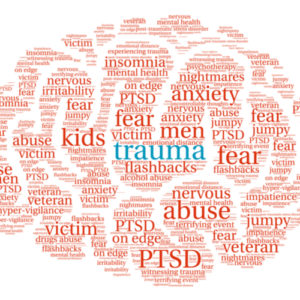Trauma-Informed Social Work recognizes the trauma symptoms of trauma and the link between it and the behaviors social workers treat. For those who haven’t experienced it firsthand, mentions of trauma-informed social work are usually relegated to a short blurb following news coverage of a crisis. We’ve all heard some versions of the following: “Trained counselors and social workers are standing by to help victims and their families.”
What is trauma informed care in social work?
Trauma informed care in social work is an approach to helping individuals who have experienced trauma. This approach recognizes the impact of trauma on a person’s physical, emotional, and mental health and seeks to create a safe and supportive environment that promotes healing and recovery.
Trauma informed care is based on the understanding that trauma can have long-term effects on a person’s well-being and that traditional approaches to care may not be effective in addressing these effects. In social work, trauma informed care involves a shift away from a focus solely on the symptoms or behaviors of the individual, and instead focusing on the underlying trauma that may be driving those symptoms or behaviors.
Trauma informed care includes several key principles:
- Safety: The physical and emotional safety of the individual is prioritized, and care is taken to avoid any actions that could retraumatize the person.
- Trustworthiness: The person is treated with respect and honesty, and care is taken to build and maintain a trusting relationship.
- Choice: The person is given options and control over their care, and care is provided in a way that empowers the individual.
- Collaboration: Care is provided in partnership with the person, and their input and feedback is valued and used to inform the care provided.
- Empowerment: The person is supported in developing their strengths and skills, and care is focused on helping them achieve their goals.
In social work, trauma informed care is used in a variety of settings, including mental health clinics, hospitals, schools, and community-based organizations. It is an important approach to helping individuals with informed care who have experienced trauma to heal and move forward with their lives.
Why is trauma informed care Important for Social Workers?
For social workers intending to work with trauma victims, it’s important to understand that the effects of traumatization are fluid. It’s not a singular event, and recovery requires a tailored solution. Below are some of the most fundamentally important and commonly misunderstood elements of trauma informed care.
Trauma Is a Spectrum
Both the trauma itself and the victim it affects are highly variable, which directly affects the nature, frequency, intensity, and duration of the victim’s responses. Some trauma sufferers will exhibit chronic symptoms that clearly fit into DSM (Diagnostic and Statistical Manual of Mental Disorders) criteria, like PTSD. Others will display episodic, unpredictable symptoms. This presentation relies heavily on the type of trauma, which often is the result of one of the trauma events listed below:
- Child or spousal abuse
- Rape
- Death of a loved one
- Near-death experiences
- Natural disasters
- Shootings
- War
- Current or prior substance abuse
- Severe injury or illness
- mental health
- substance abuse
- any traumatic event
- childhood trauma
- traumatic stress
- trauma history
- sexual abuse
- domestic violence
This is not an exhaustive list, but it covers the bulk of trauma incidents. In addition to the unpredictable nature of trauma itself, no two victims react to the same trauma in the same manner. Age, gender, past experiences, stress, mental illness, and other mitigating factors can affect one’s response to trauma. With so many moving parts, how do social workers narrow down their approach? It starts by respecting the survival state.

Survival Comes First
Trauma is a situation in which a person has no control over a potentially lethal threat. The brain has a response system for these scenarios, commonly known as the “fight-or-flight” response. This response system quickly floods the body with adrenaline and other powerful hormones in our nervous system, where nerves “turn on” and off at blinding speed. These hormones tend to linger, especially if the threat remains. Some ways that trauma informed social workers can help with informed care in these situations include:
- Assist clients with support services in coping skills
- Provide mental health services around traumatic experiences, because trauma related symptoms can cause a paradigm shift in people
- Assist with trauma informed care in the clients’ physical environment
- Assess mental health and the trauma history in clients
- Help trauma survivors with their mental health thru a trauma informed care approach
- Through a trauma informed care approach educate clients on post traumatic stress disorder
- Take a trauma informed approach when dealing with physical health
- Assist clinical psychology clinics with trauma theory, behavioral health services, mental health services, basic human services, and help with problematic behaviors through a trauma informed approach
- A social worker needs to be trained in a trauma informed care approach
Why does Respecting the Survival State Matter in Trauma Informed Social Work?
Respecting the survival state matters because, without the support to make it through this initial shock, a victim cannot begin to process, overcome, or even acknowledge the trauma. If the trauma occurred recently, the victim needs to be in a stable and supportive environment. Instead of bringing the trauma up first, it’s more effective to create and reinforce a feeling of safety. This may mean:
- bringing in friends and family members with trauma informed systems
- communing with other victims who are experiencing traumatic stress
- physically removing the victim from an area they associate with the trauma with informed care
- anything else that will reinforce the sense of safety with support services, and a trauma informed practice
If a trauma victim is still in the acute survival response, they may display one or more of the following trauma symptoms:
- Increased muscle tone (straining at the neck, clenched fists common)
- Rapid or irregular breathing
- Rapid speech, low attention span
- Sweating and/or stomach ache
Trauma Is Self-Perpetuating
Research has proven that trauma begets more trauma. This means that victims are both more sensitive to certain triggers and statistically prone to substance abuse and other harmful coping mechanisms. As such, social workers must think of trauma as a state of being, not a singular event. Without this appreciation of the secondary effects, a social worker may focus only on overcoming the source of the trauma without also addressing the problems it created.
Many trauma victims develop anxiety, depression, and asocial behaviors without realizing it. This is why screening is instrumental in trauma informed care. The vigilant screening will expose sources of trauma, identify related symptoms, and prevent re-traumatization if used properly. Knowing a victim’s triggers, another benefit of screening will add clarity and direction to treatment.

Recovery Is Multi-Faceted
In addition to the psychological and physical ramifications of trauma, social workers can facilitate recovery on a social and financial scale. Trauma victims often lose out on work, school, and social interaction while they are in the coping process. Included in the purview of most social work arenas, not just trauma, is the use of community resources to help people in this situation. Timing is an important factor in this stage of recovery, because if a trauma victim is not yet ready to resume their obligations at full capacity, an unsuccessful reintegration attempt may worsen symptoms.
Even after what seems to be a full recovery, trauma victims are often left with skewed perceptions and phobias that relate to the circumstances of their trauma. A strong fear of swimming, for example, may affect someone who survived a near-drowning incident. These phobias and perceptions can form strong triggers that interfere with daily life. Once again, trauma screening helps identify avoidance behaviors so that social workers and counselors may address them.
The Ripple Effect
When building a support network around a traumatized individual, it’s important to consider the effect that their experience has had on their loved ones. Even if family members weren’t present at the traumatic event(s), they can become traumatized as they empathize with the victim. According to the Council on Social Work Education, it’s often beneficial to counsel family members and loved ones as well as the victim, so that the support network remains strong.
This idea of the ripple effect also helps social workers to identify groups and individuals who may need their services. People are often hesitant or embarrassed to seek counseling for the first time. However, they are more likely to agree to a group therapy situation. It’s important to avoid tunnel vision in cases of trauma by screening the victim’s support group as well.
What Does A Social Worker Do In Trauma?
Social workers play a crucial role in addressing trauma and supporting individuals who have experienced traumatic events. Social workers who specialize in trauma may work in a variety of settings, including hospitals, mental health clinics, schools, and community-based organizations. Here are some of the things that a social worker may do in trauma:
- Provide emotional support: Social workers help individuals who have experienced trauma to process their emotions and work through the effects of the trauma. They may use a variety of techniques, such as talk therapy, mindfulness, and relaxation exercises, to help individuals manage their feelings.
- Assess needs: Social workers conduct assessments to identify the needs of individuals who have experienced trauma. They may evaluate a person’s physical, mental, and emotional health and connect them with appropriate resources and services.
- Advocate for clients: Social workers may serve as advocates for their clients, working to ensure that they receive the care and support they need. This may involve working with healthcare providers, educators, and other professionals to coordinate care and services.
- Develop treatment plans: Social workers work with individuals who have experienced trauma to develop treatment plans that are tailored to their specific needs. This may involve a variety of interventions, such as cognitive-behavioral therapy, group therapy, or family therapy.
- Provide education: Social workers provide education to individuals who have experienced trauma and their families, as well as to other professionals. They may provide information on the effects of trauma, coping strategies, and available resources and services.
- Address systemic issues: Social workers may work to address systemic issues that contribute to trauma, such as poverty, discrimination, and social injustice. They may advocate for policy changes and work to promote social and economic equity.
Overall, social workers play a critical role in supporting individuals who have experienced trauma, helping them to heal and move forward with their lives.
Traumatization is a State of Being, Not an Event
To review, traumatization is a state of being, not an event. It requires an approach that shifts the victim into an unconditionally positive and safe environment. Immediately following trauma, victims will likely not be receptive to any attempts to work through it. Instead, they should have their immediate needs met.
- Everyone reacts to trauma differently
- Trauma can impact people who weren’t present
- Recovery requires a multi-faceted approach.
Related:


